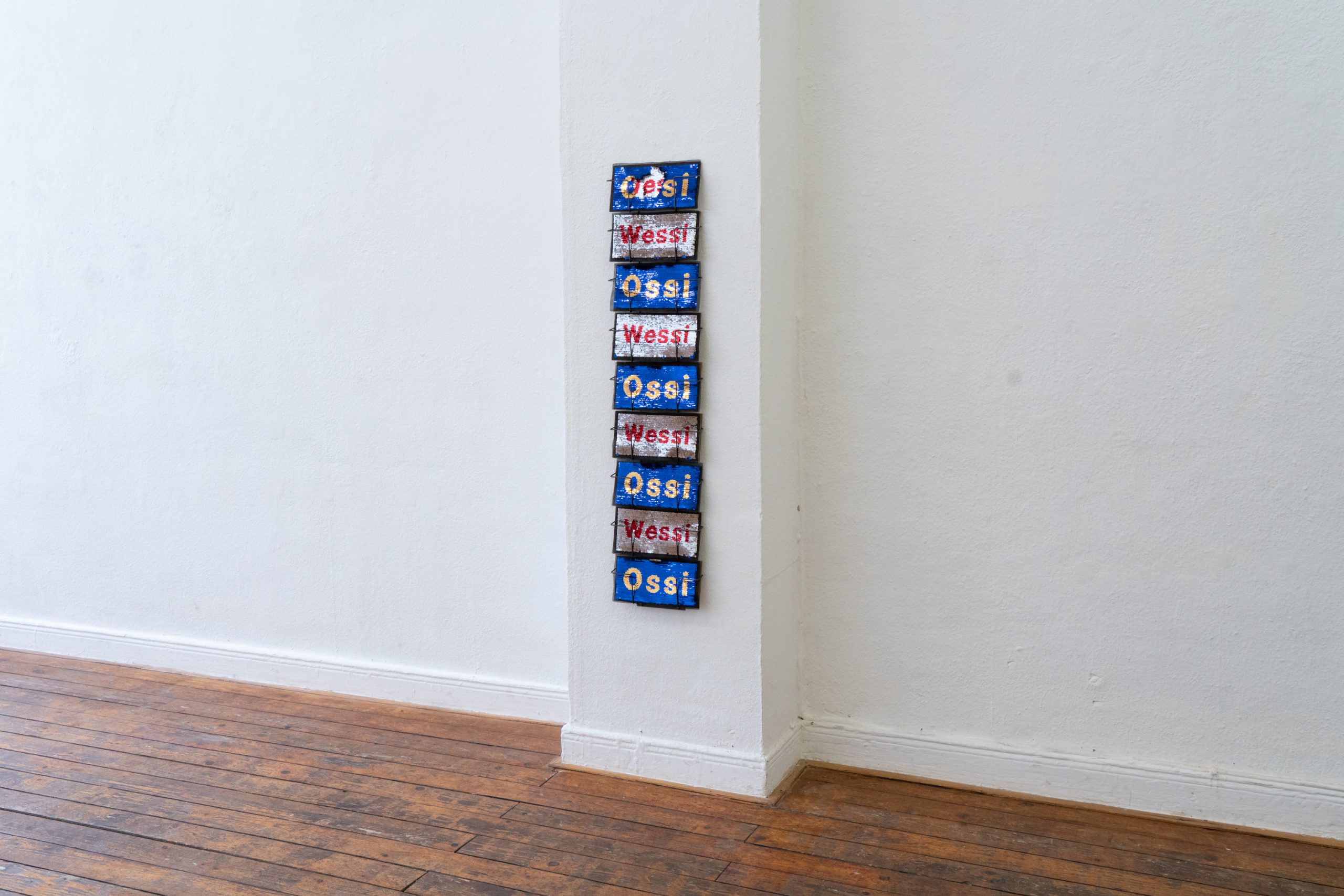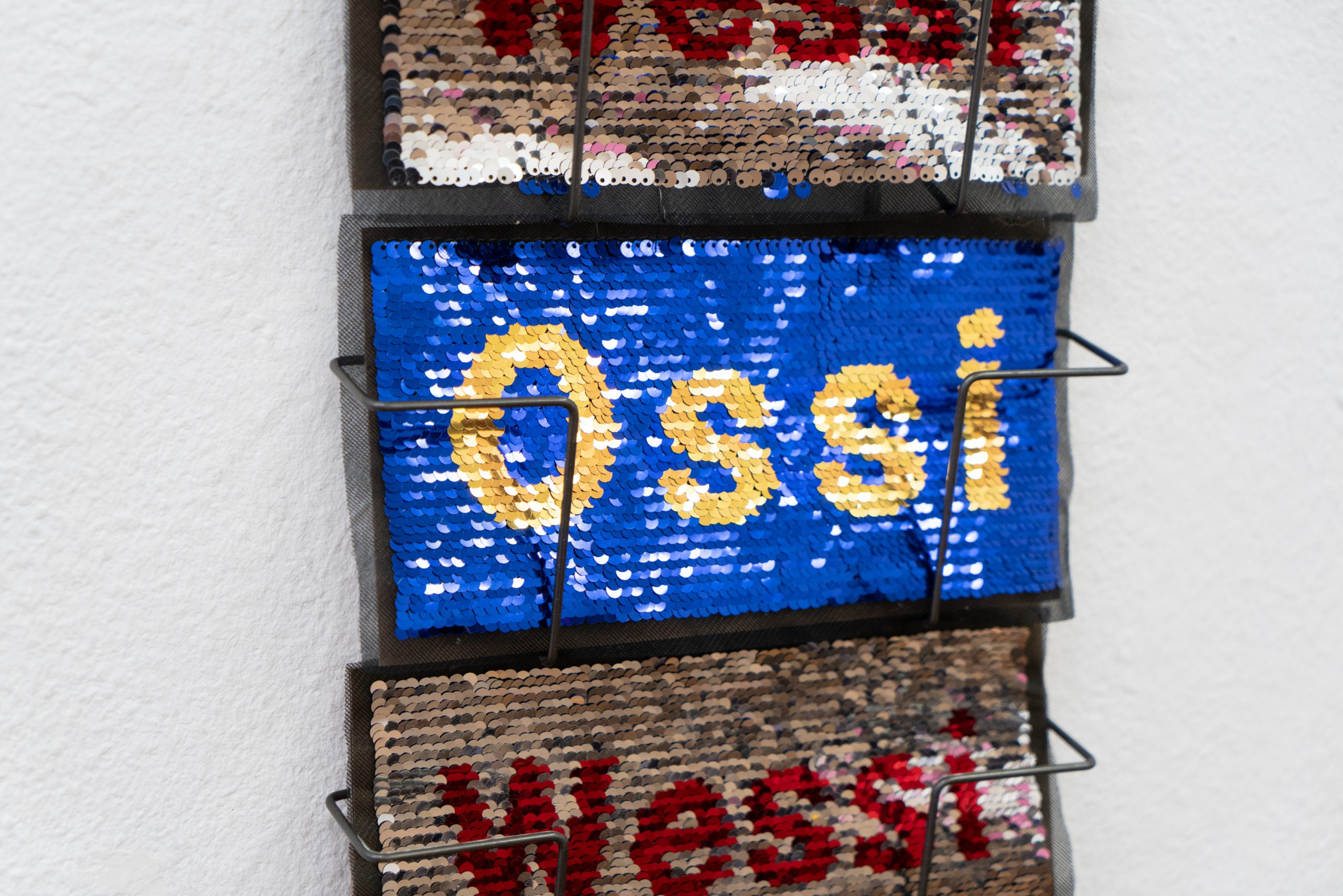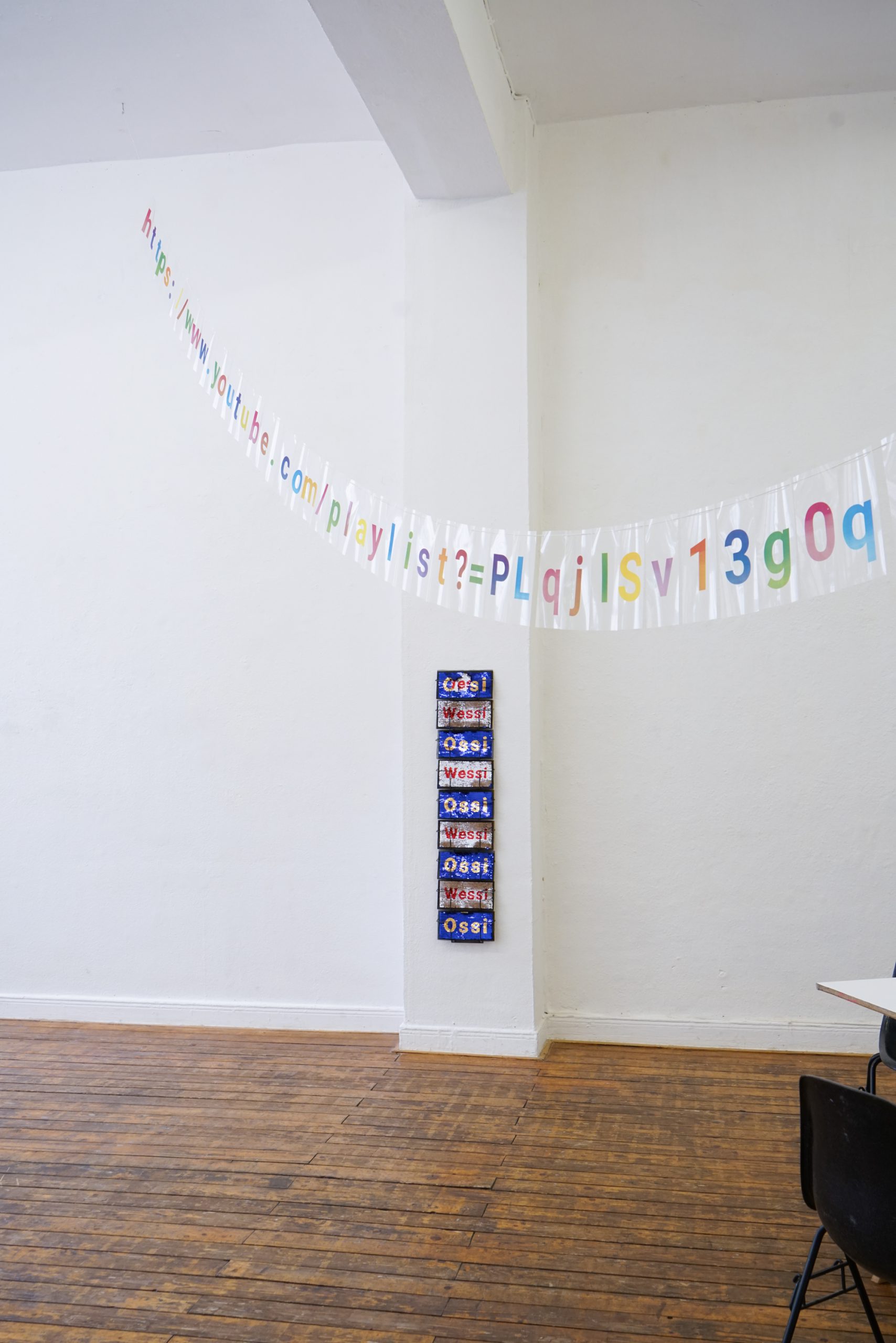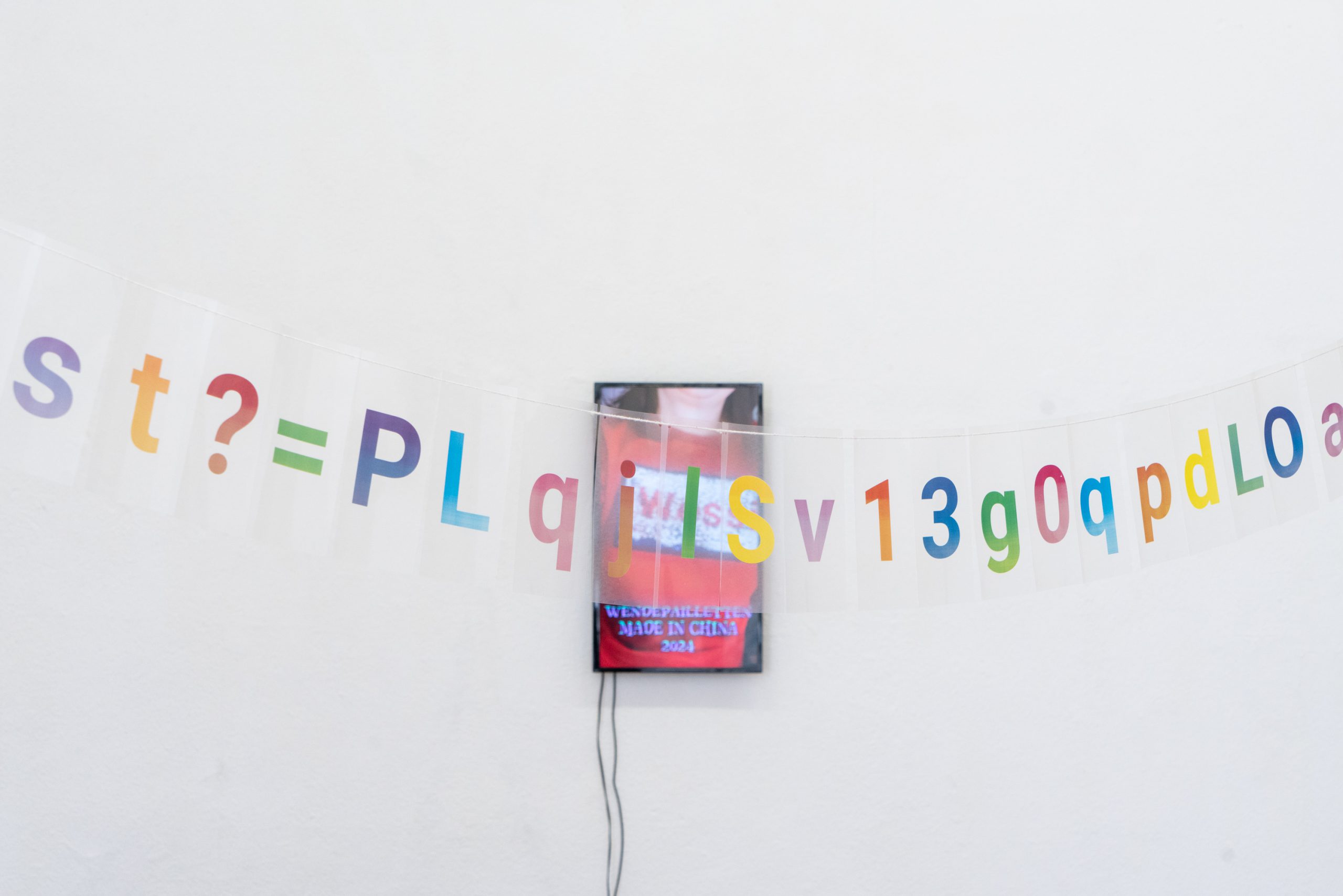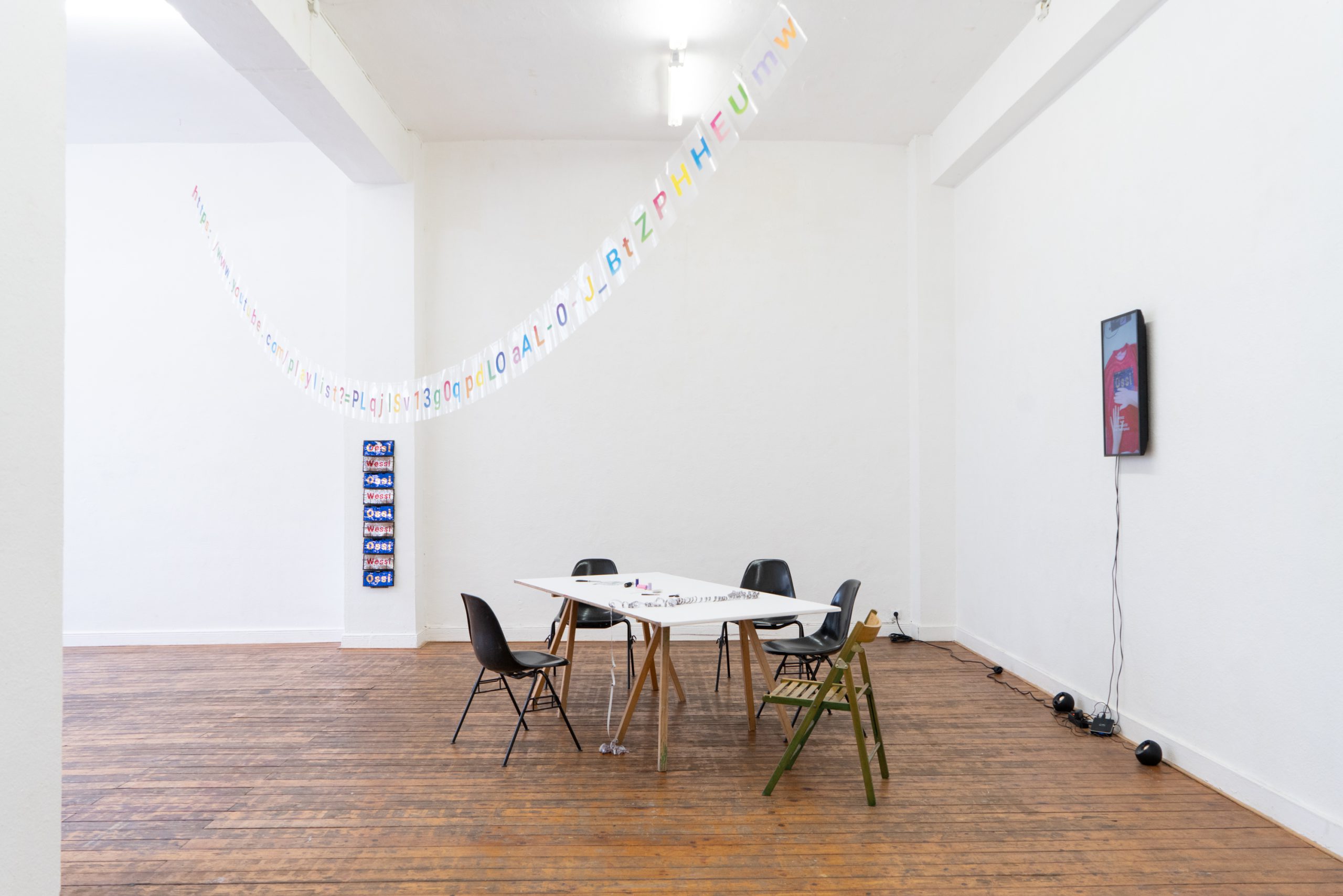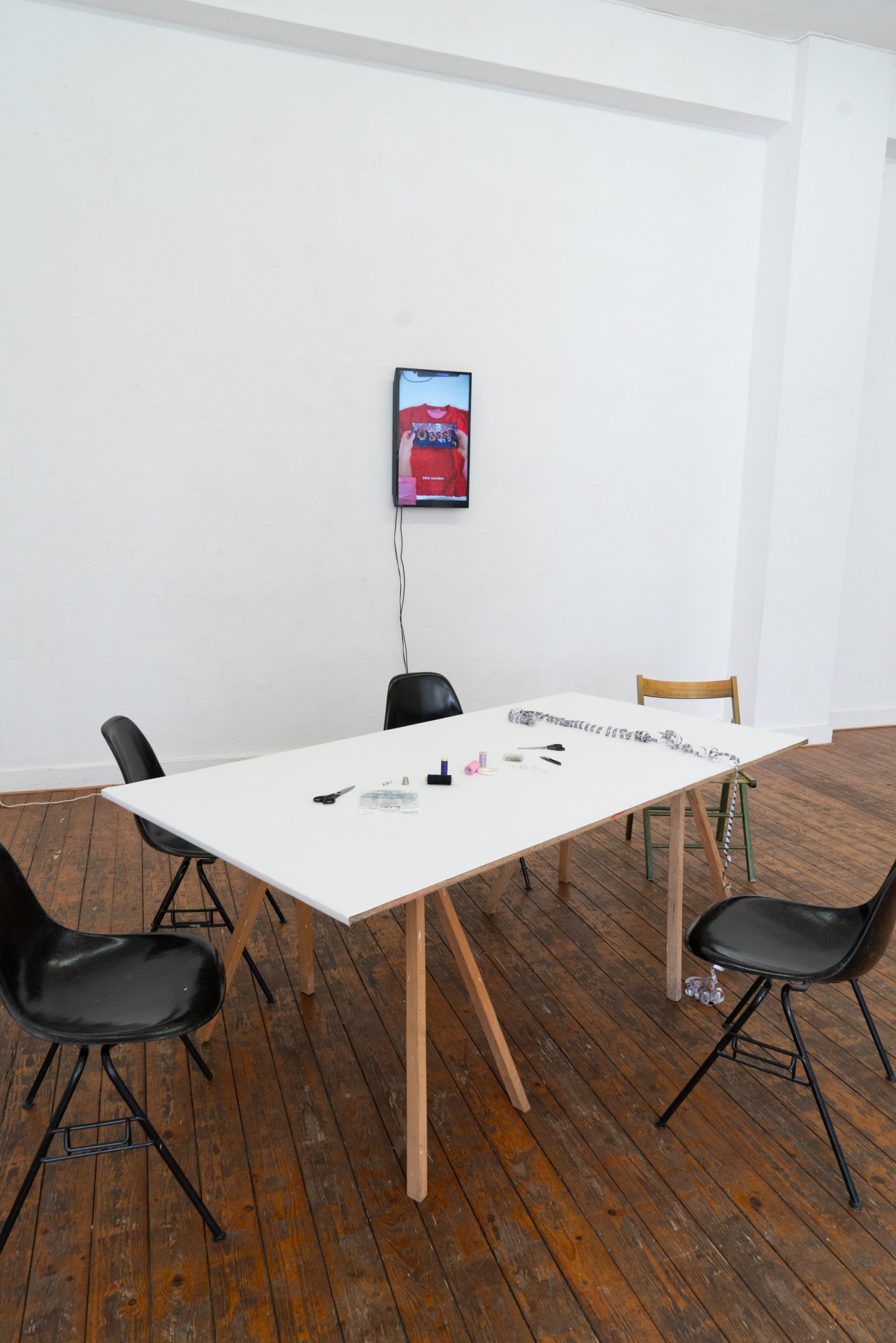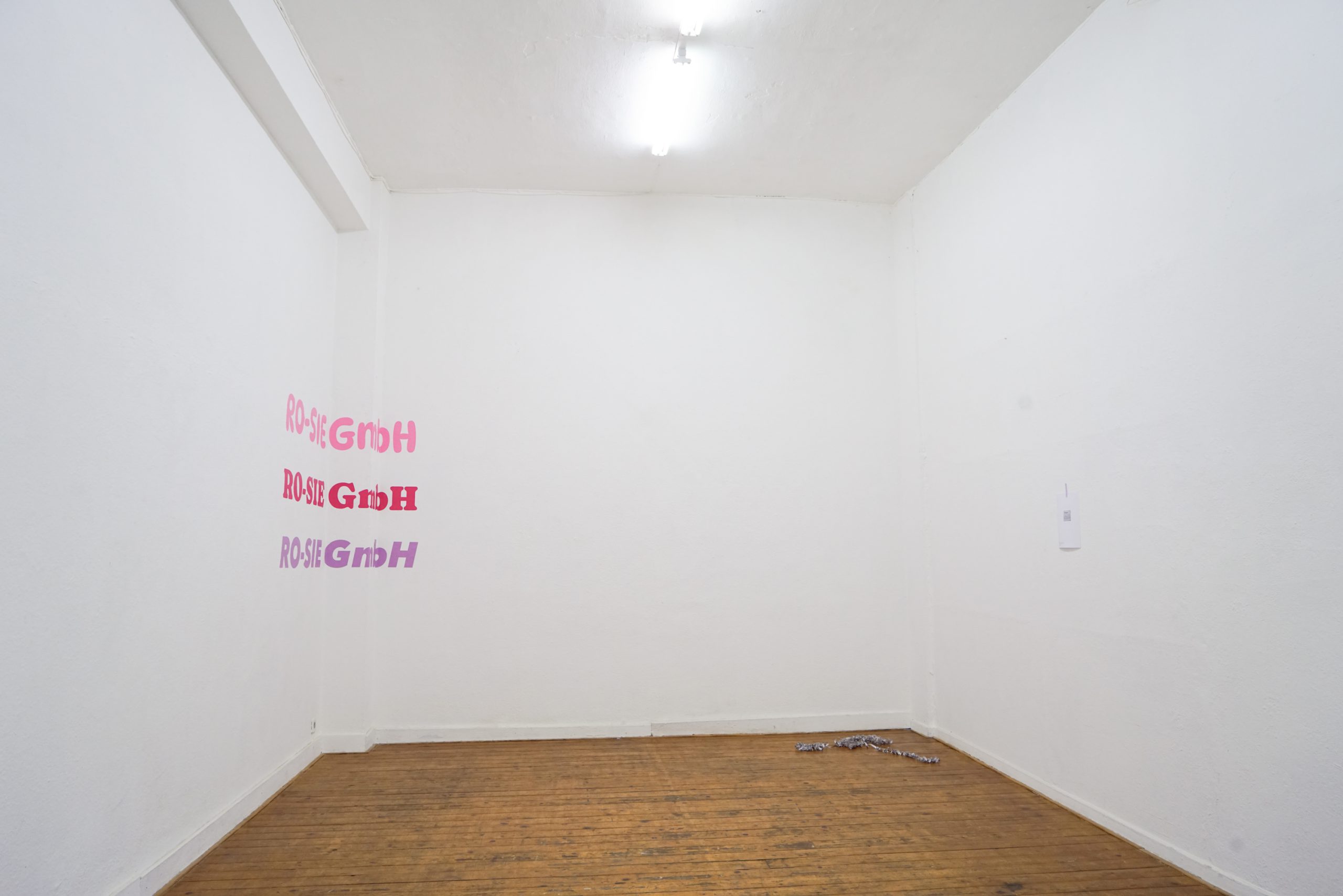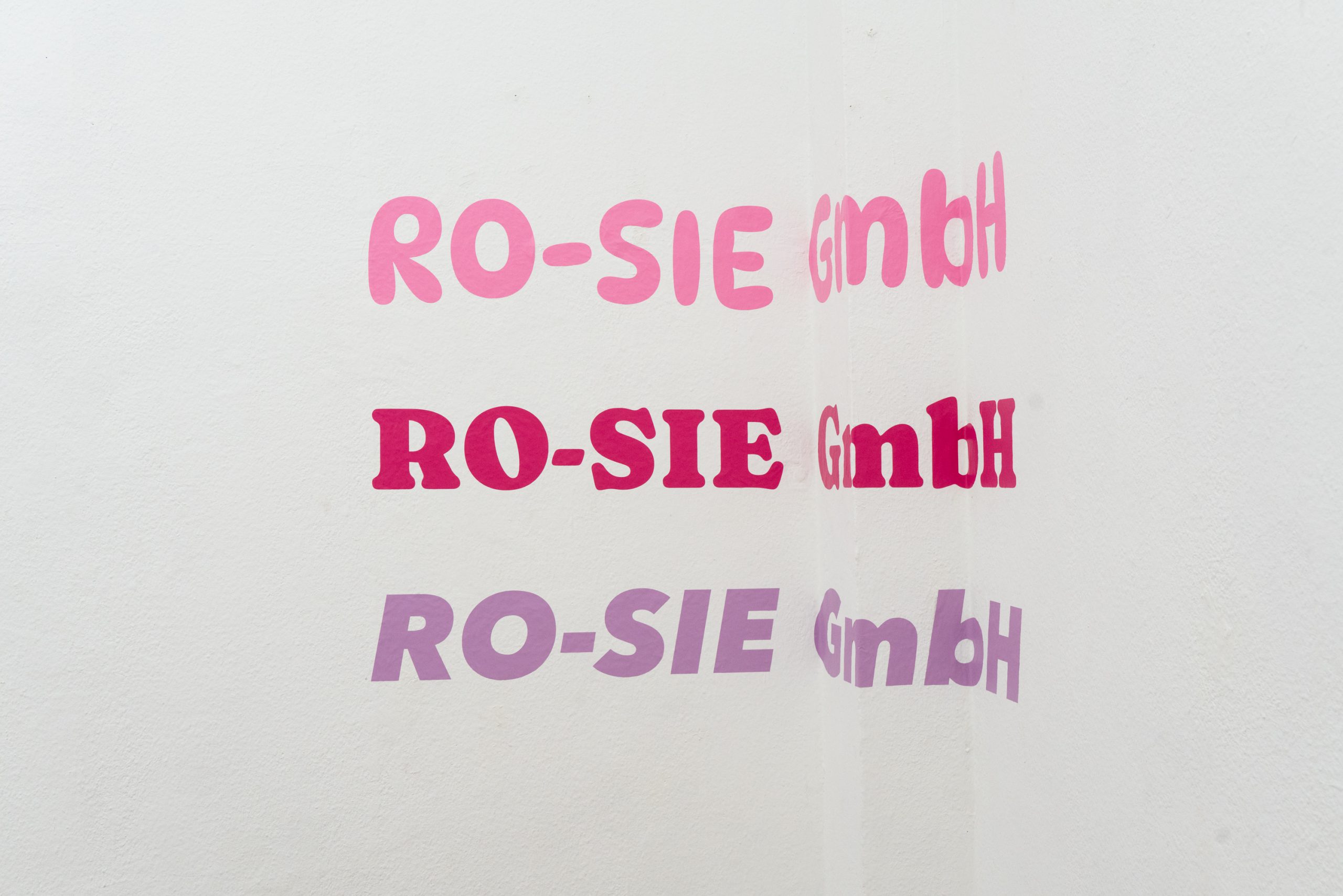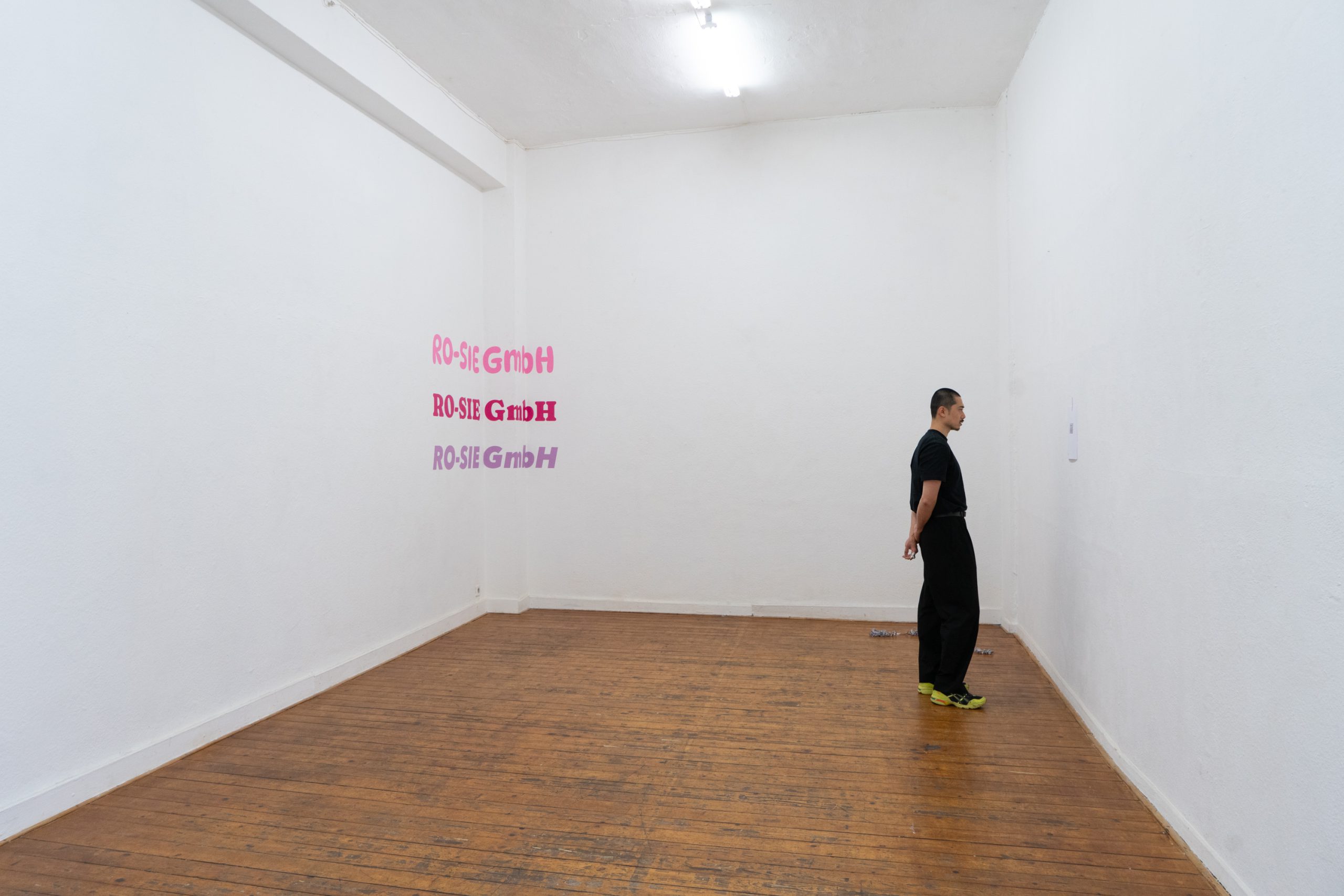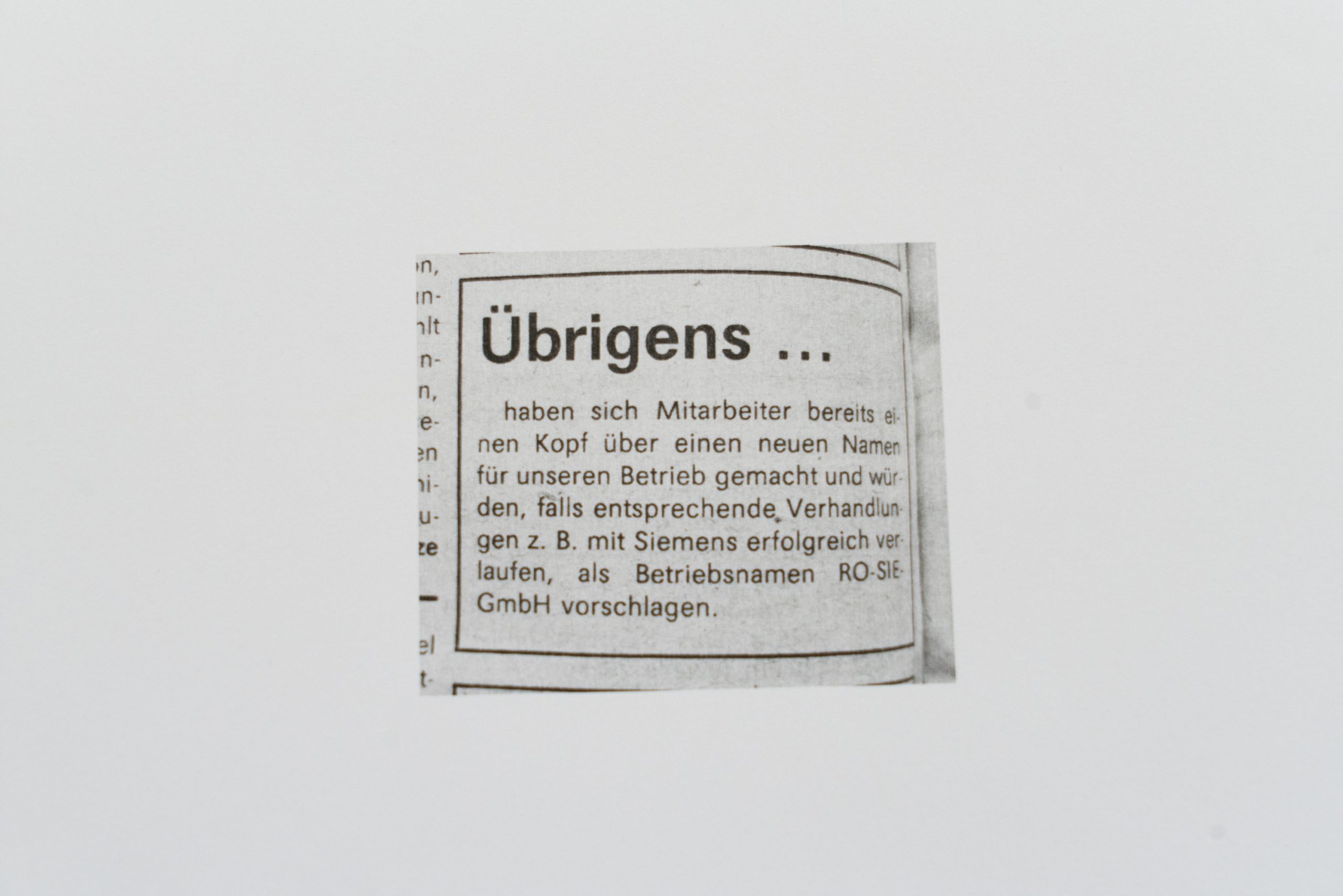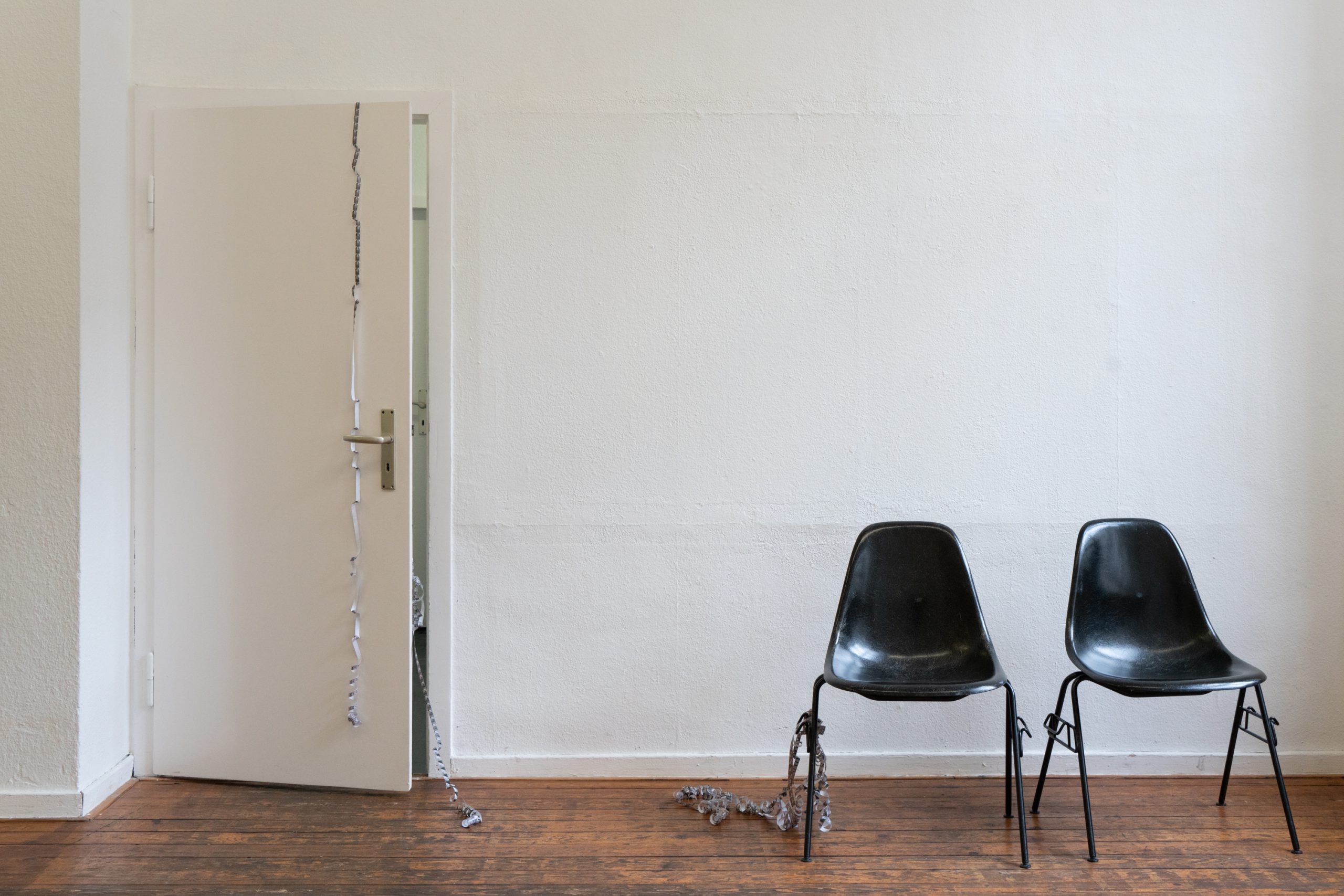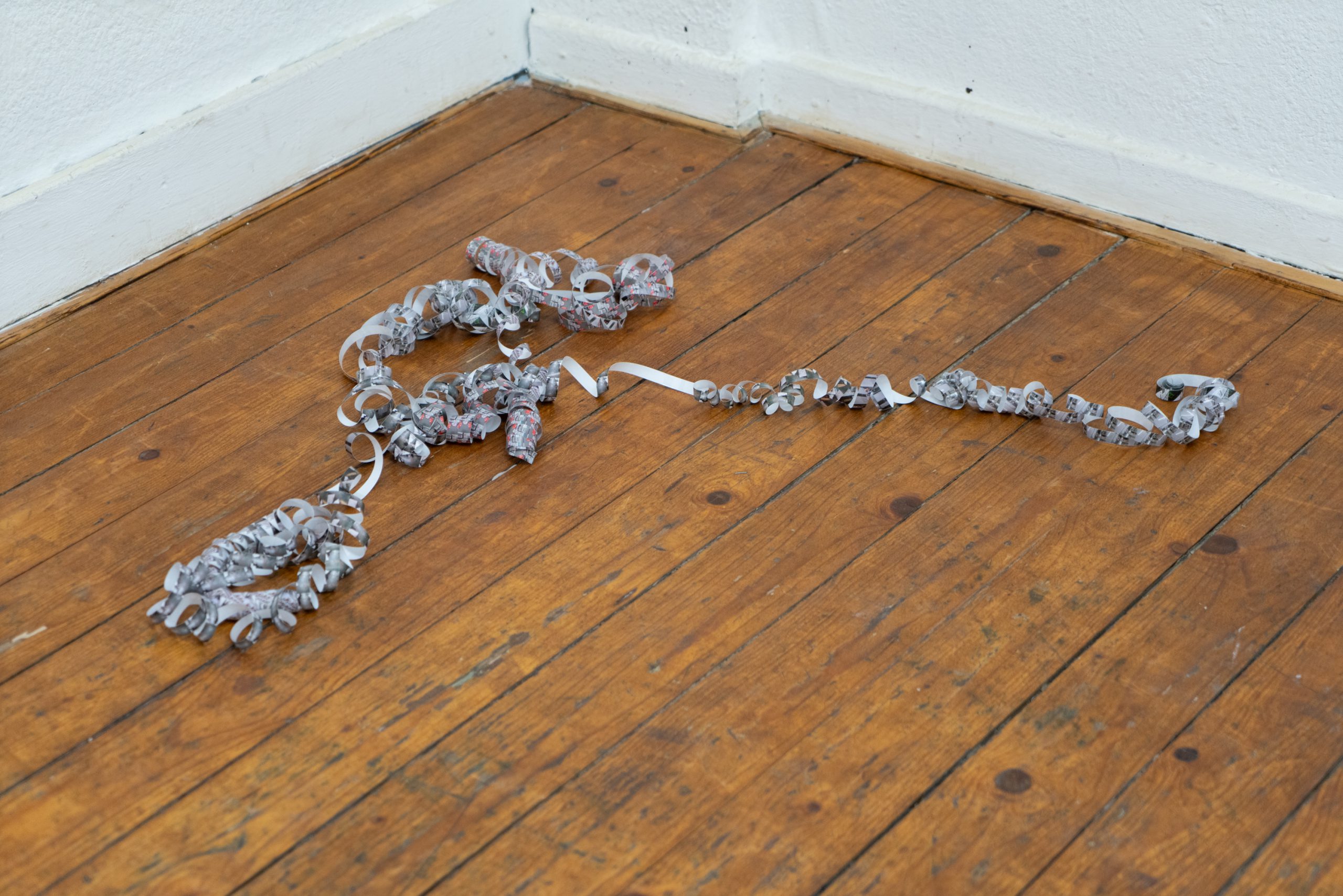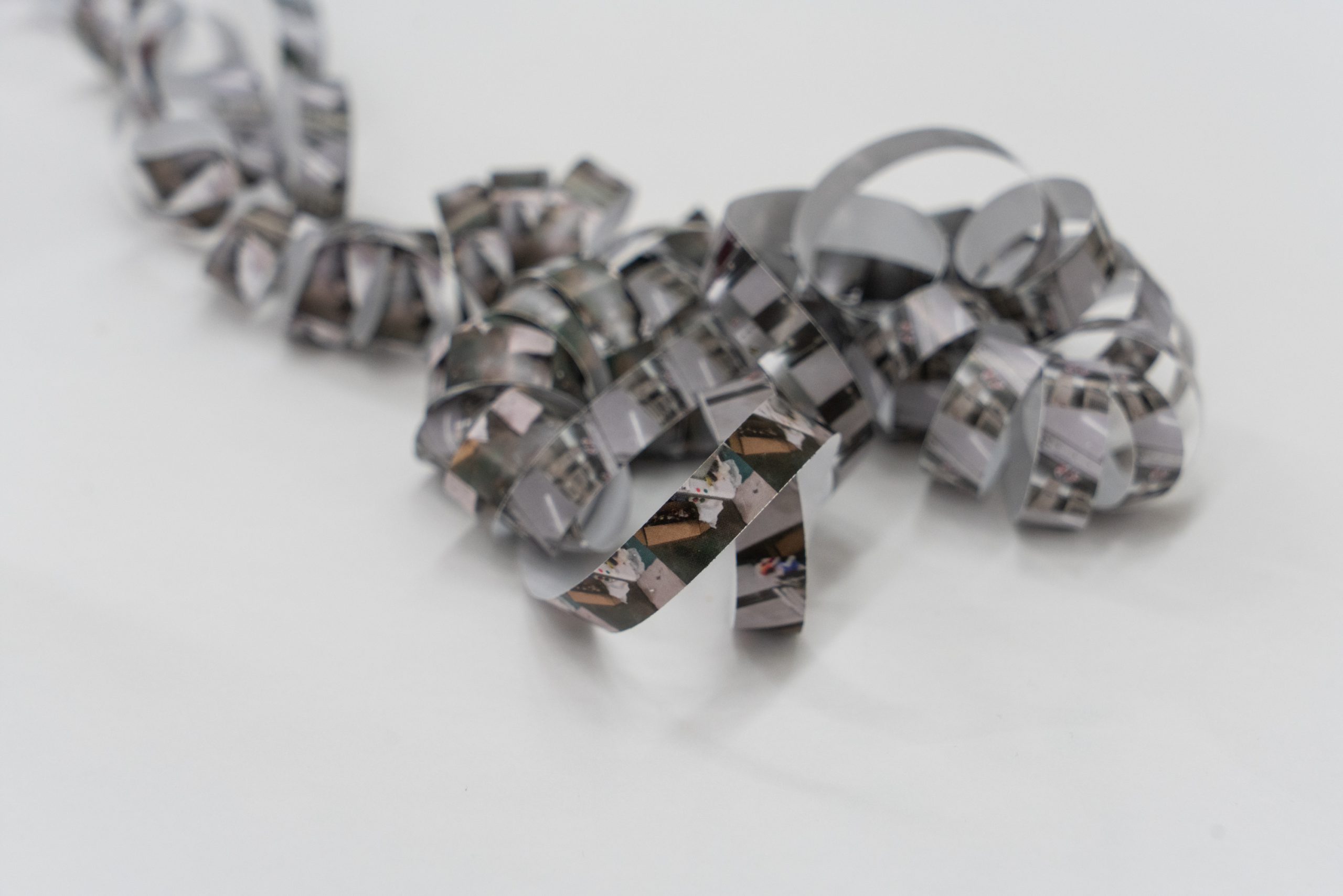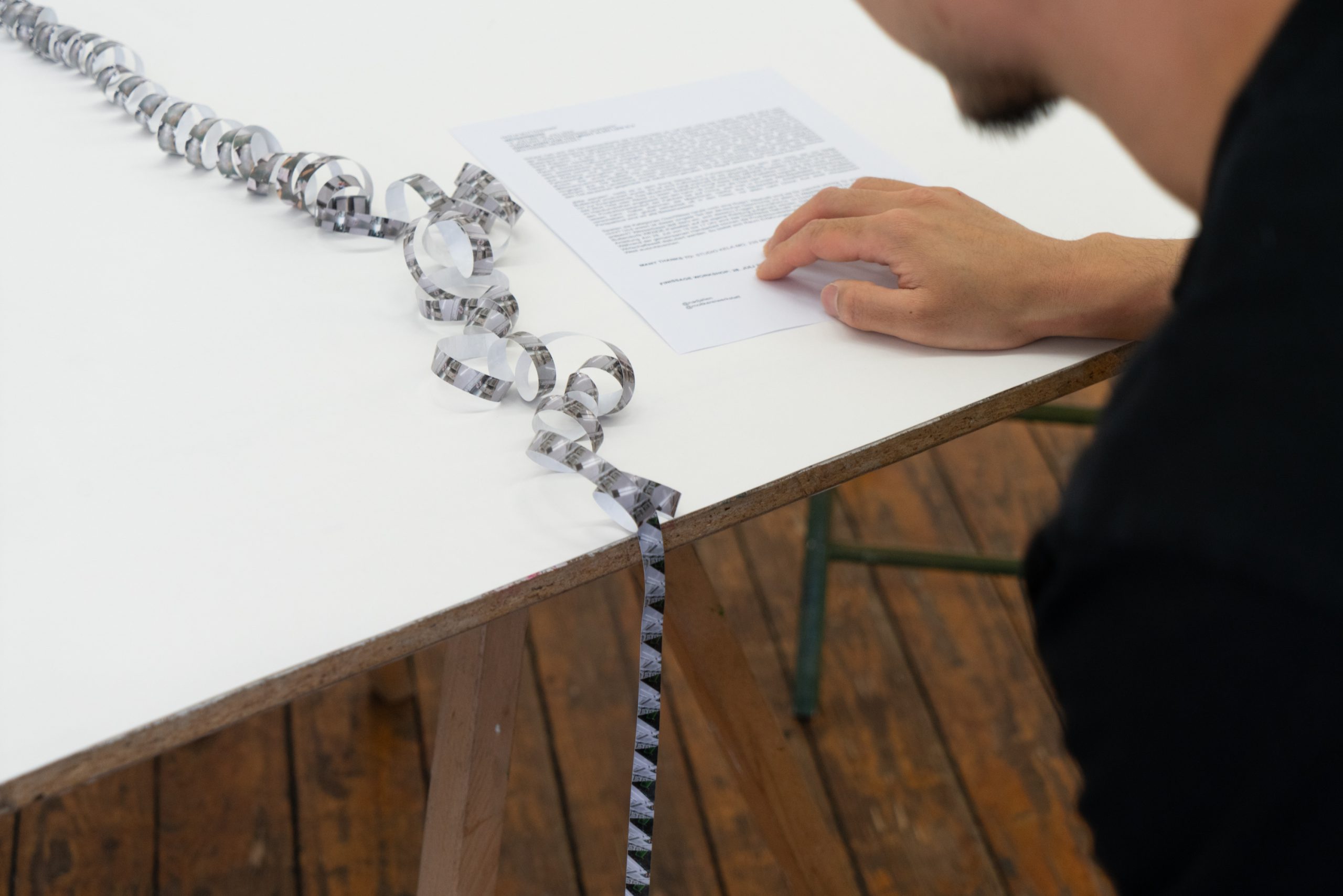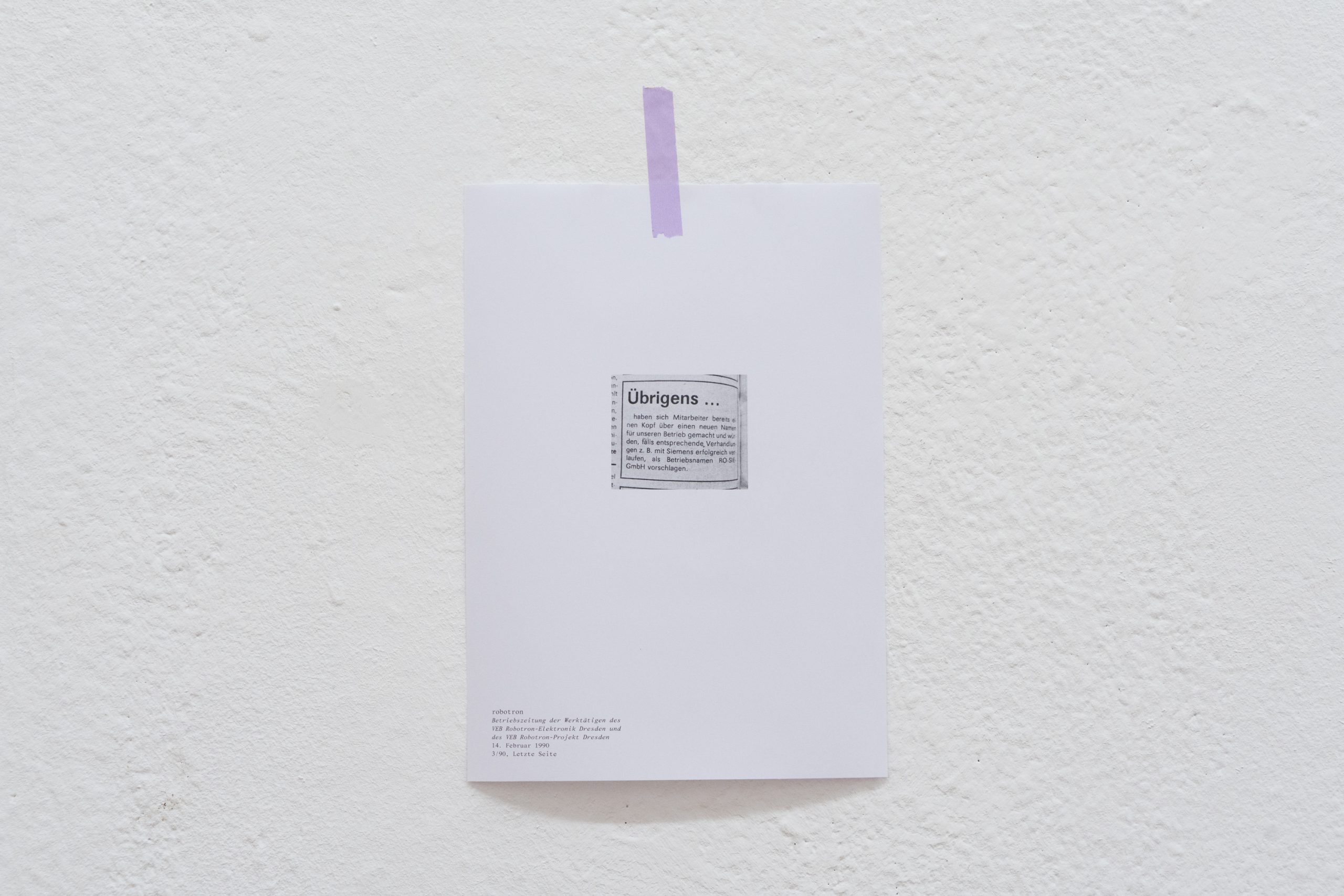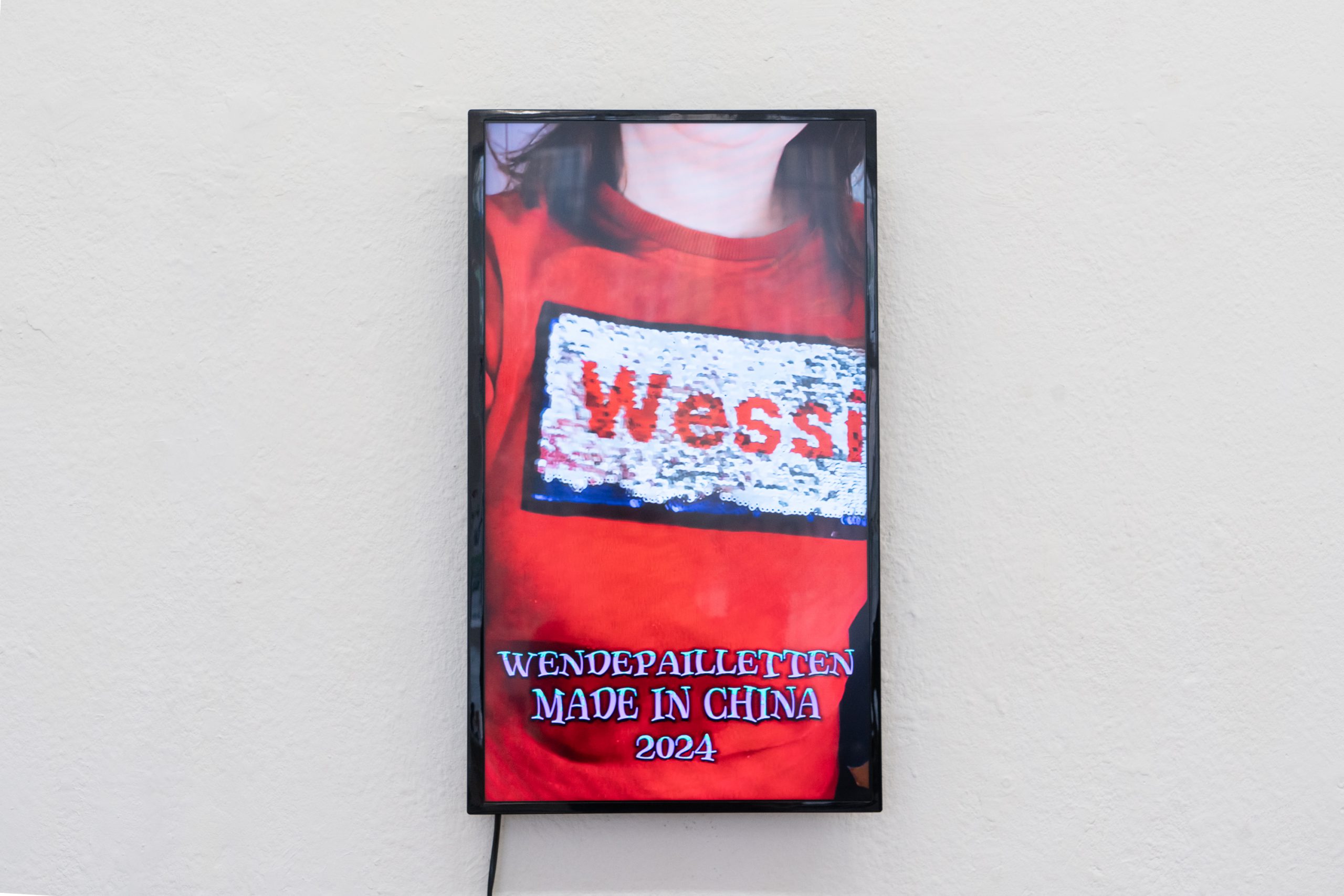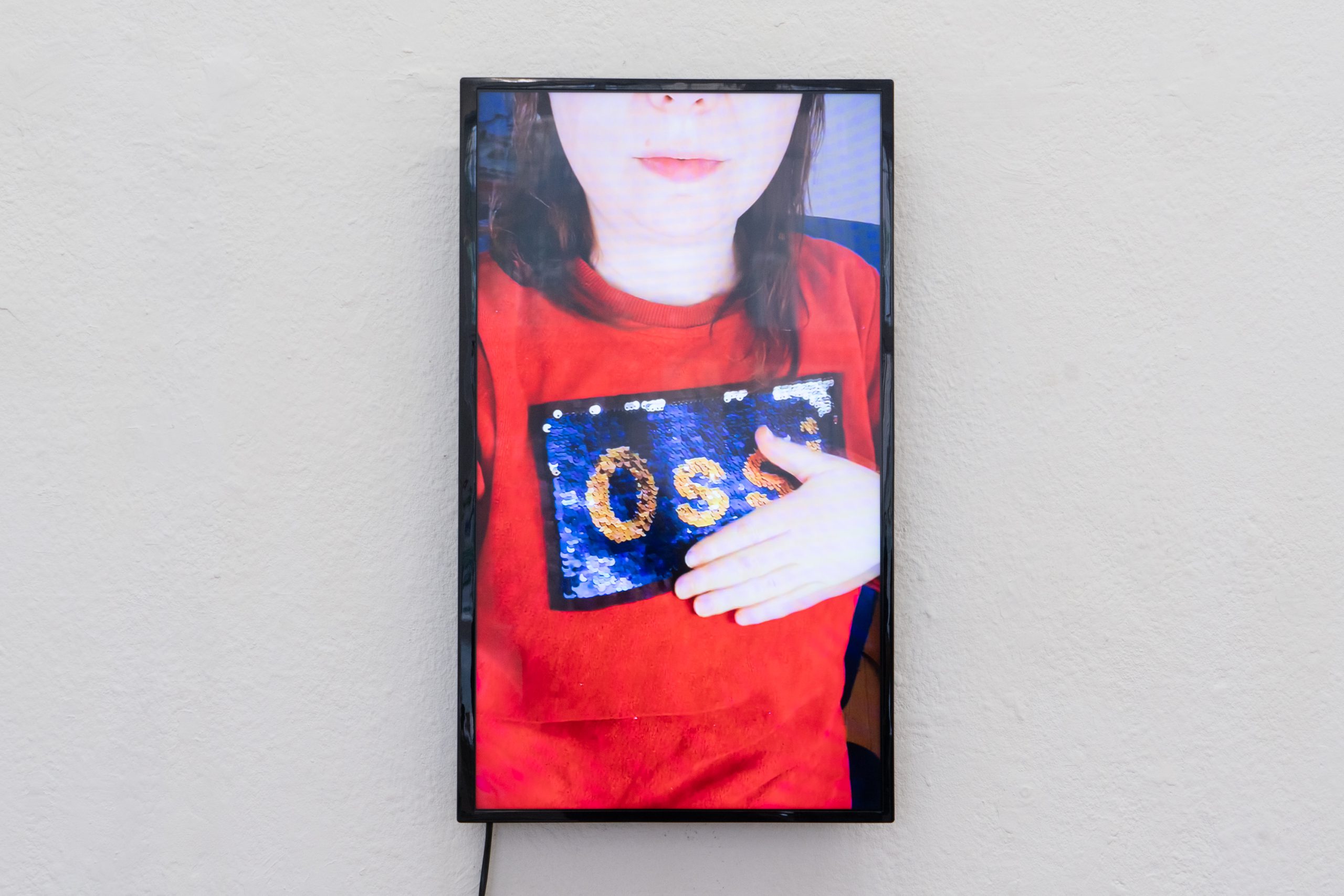Nadja Buttendorf Wesserbessi / Westy Know-it-all July 13 – 28, 2024
Venue
Moltkerei Werkstatt e.V.
Moltkestrasse 8
50674 Köln
Germany
Curated by Friederike Quander
Special thanks to
Studio kela-mo, 235 Media, Nelly Paletta, Peter Behle, Alexander Pütz and all Volunteers
Photos
Aram Bartholl
If you look at the map of Germany after the elections for the European Parliament, you don’t get the feeling that anything has been reunited 35 years after the German reunification. Nadja Buttendorf traces the historical circumstances for this when she looks at the balance of power between East and West. In her YouTube series Robotron – a tech opera, she tells the story of the state-owned company Kombinat Robotron, the largest manufacturer of computer technology in the GDR (the link to it runs through the room as a garland). After the so-called “Wende” (Peaceful Revolution in 1989), the employees looked forward to the fusion with West German Siemens with hope. They were looking forward to working together as equals and were already speculating about the new company name. RO-SIE GmbH appeared to be an appropriate combination of Robotron and Siemens. However, as is well known, things turned out differently. Instead of entering into a partnership of equals, Siemens flattened Robotron. Almost all East German companies fared similarly. They were greedily bought up by West German businessmen, who received millions in state subsidies in return. However, the promised modernisation and job preservation failed to materialise. The
companies were forced to close, causing the East German economy to collapse after reunification. Entire regions were deindustrialised. The often arrogant behaviour of West Germans towards East Germans did not help. The term „Besserwessi“ made a career for itself, which is a play on words from the German words for a know-it-all (Besserwisser) and a West German (Wessi).
„Please turn“ says the song Wende by Futuremaps030 from 2020, which was produced by Nadja Buttendorf (Wende means turnaround). It is a call to all politics – from East-West relations to the energy transition. The music video shows Buttendorf’s WENDE-sequins for the first time: Either the word “Wessi” or “Ossi” (East German) can be read on them. Buttendorf is now bringing these WENDE sequins to the people, so that they can quickly decide whether they see themselves as Ossi or Wessi. China was chosen as the production location for the patches because it is not possible to have them manufactured in Europe. The machines for production come from Germany. From a global perspective, labour-intensive production often shifts to the East, especially to China. From a Chinese perspective, we are all “Besserwessis”. Do the categories Ossi/Wessi still play a role today? Why are they important for some and not for others? And why is this most recent part of German history so little present, especially in West Germany?
Wesserbessi invites you to take a closer look at these questions. In the Ossi/Wessi sewing café, Buttendorf’s WENDE-sequins can be sewn onto your own clothes. The video tutorial serves as a guide. On 28 July from 3 to 5 pm, the Ossi/Wessi sewing café will be led by Nadja Buttendorf. While sewing together, the production conditions of our globalised economic world can be discussed. There will be space to exchange experiences, prejudices and knowledge from East and West.



